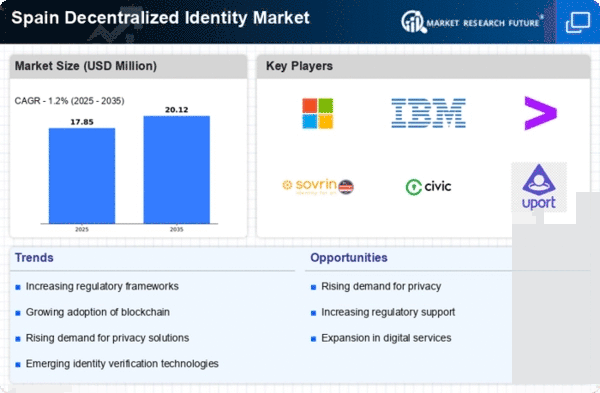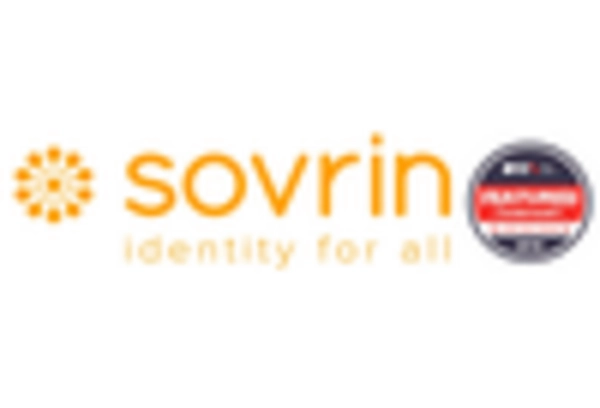Government Initiatives and Funding
The Spanish government is actively promoting the adoption of decentralized identity solutions through various initiatives and funding programs. By investing in digital identity frameworks, the government aims to enhance the security and efficiency of public services. Reports indicate that the government has allocated over €50 million to support projects related to digital identity and blockchain technology. This financial backing is expected to stimulate innovation within the decentralized identity market, encouraging startups and established companies to develop new solutions that align with government objectives.
Rising Demand for Privacy Solutions
The increasing concern over data privacy and security is driving the decentralized identity market in Spain. Consumers are becoming more aware of the risks associated with centralized identity systems, which have been prone to data breaches. As a result, there is a growing demand for solutions that offer enhanced privacy and control over personal information. According to recent studies, approximately 70% of Spanish citizens express a preference for decentralized identity solutions that allow them to manage their own data. This shift in consumer sentiment is likely to propel the decentralized identity market forward, as businesses and service providers seek to meet these evolving expectations.
Integration with Emerging Technologies
The integration of decentralized identity solutions with emerging technologies such as blockchain and artificial intelligence is reshaping the landscape of the decentralized identity market in Spain. These technologies offer enhanced security, transparency, and efficiency, making them attractive to businesses and consumers alike. For instance, the use of blockchain can provide a tamper-proof record of identity transactions, which is crucial for building trust. As organizations increasingly adopt these technologies, the decentralized identity market is likely to experience significant growth, with projections suggesting a compound annual growth rate (CAGR) of 25% over the next five years.
Increased Focus on Digital Transformation
The ongoing digital transformation across various sectors in Spain is creating a fertile ground for the decentralized identity market. Organizations are increasingly recognizing the need for secure and efficient identity management solutions to support their digital initiatives. This trend is particularly evident in sectors such as finance, healthcare, and e-commerce, where identity verification is critical. As businesses invest in digital solutions, the demand for decentralized identity systems is expected to rise, potentially leading to a market expansion of over 30% by 2030. This focus on digital transformation is likely to drive innovation and competition within the decentralized identity market.
Collaboration Between Public and Private Sectors
Collaboration between public and private sectors is emerging as a key driver for the decentralized identity market in Spain. Partnerships between government agencies and technology companies are fostering the development of innovative identity solutions that address the needs of both citizens and businesses. These collaborations often result in pilot projects and initiatives that test the viability of decentralized identity systems in real-world scenarios. As these partnerships grow, they are likely to enhance the credibility and adoption of decentralized identity solutions, potentially increasing market penetration by 40% over the next few years.
















